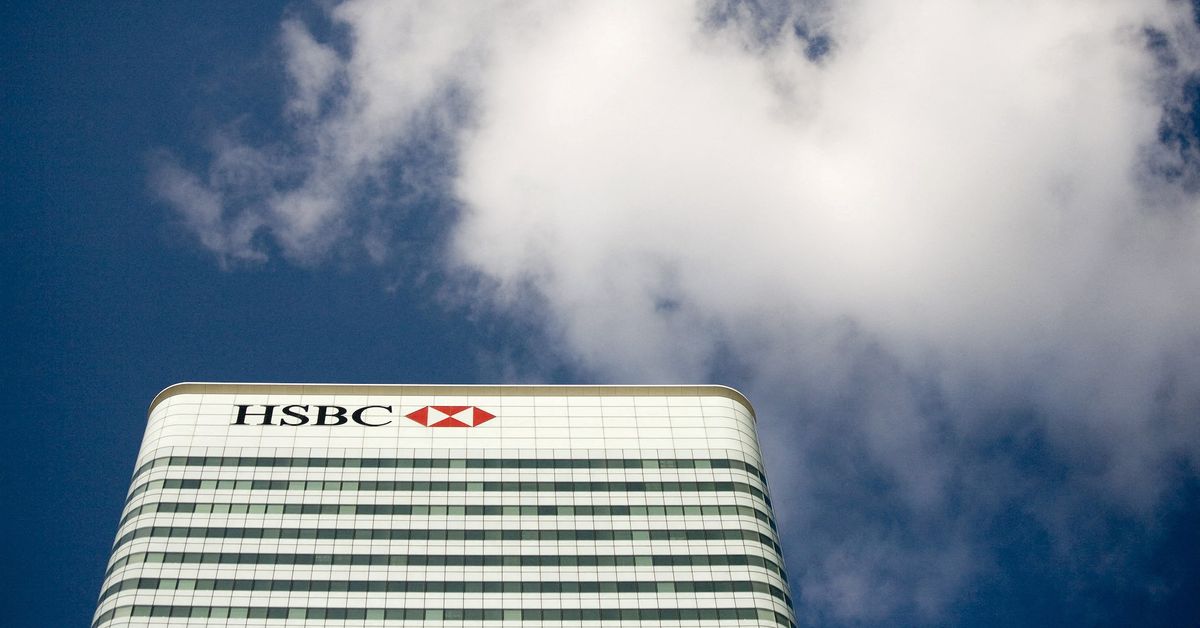
London’s Canary Wharf financial district is considering a radical redesign of one of its largest office towers that could include apartments or hotel space once tenant HSBC (HSBA.L), opens new tab leaves, sources told Reuters, in a sign of the wider rethink that awaits the global office market.
Landlord Canary Wharf Group (CWG) invited around 20 architectural practices to submit proposals for the 45-floor building and began shortlisting designs in recent weeks, three sources familiar with the matter said.
The remit is to come up with alternative uses and the building’s owner, the Qatar Investment Authority (QIA) – which co-owns CWG – was involved in running the contest, one of the design firms invited said, declining to be named.
CWG declined to comment. QIA did not respond to a request for comment.
HSBC decided last year to quit the skyscraper sporting its name in late 2026, moving to a building half its size in the more central City of London.
The fate of one of Britain’s biggest office buildings is being closely watched by a property industry pummelled by high borrowing costs and emptier post-pandemic offices.
CWG said last month that property values in the area had fallen by 15%, or 1.2 billion pounds ($1.5 billion), in a year and that it had secured 553 million pounds of new loans and refinancings.
Revamping HSBC’s tower, which has 1.8 million square feet of floorspace – equivalent to around 30 soccer pitches – could cost hundreds of millions of pounds, another source familiar with CWG’s thinking said.
Some property experts believe it would be cheaper to knock it down and start again – but this may be unpalatable for environmental reasons.
No final decisions on the tower’s future have been made, including retaining office space, the sources added.
“The building is hugely significant because it’s an icon of late 20th century built environment,” said Yolande Barnes, professor at the Bartlett Real Estate Institute, adding there was a widespread problem of potentially obsolete buildings.
HSBC has occupied the skyscraper since 2002. It has been home to up to around 8,000 HSBC employees, some of whom refer to the skyscraper as the “Tower of Doom”.
The building was originally designed by architect Norman Foster’s practice. Foster + Partners was not immediately available for comment on whether it had participated in the new contest.
While landlords often assess their options for soon-to-be vacant buildings, the sources said the design contest had been unusually broad and that CWG recognised the need to rethink the tower and reset the local market.
Submitted proposals included carving into the building’s floor plates to create large atriums for more daylight and changing the cladding, to make it more suitable for flats or hotels, the sources said.
Canary Wharf sprung up in an old Docklands area of east London in the 1980s and remains home to financial firms including Barclays and Morgan Stanley, both of which recently committed to staying.
In recent years, Canary Wharf Group has focused on diversifying the mix of uses in the area by building more homes, restaurants and laboratories.





